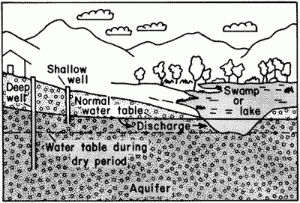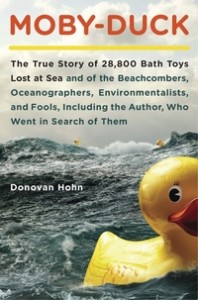Dear readers, please excuse me while I have a quarter life crisis. We’ll get back to your regularly scheduled science writing posts momentarily. The last few weeks have seen such a mix of emotions, that it seems necessary to collect them in a blog post as an update for my semester long series about graduation and saying goodbye to Madison. So here is a self indulgent list of all the thoughts ricocheting in my brain. My hope is that a post like this chronicling the weird, pathetic, and hopeful thoughts of a graduate, a graduate school graduate mind you, about to be turned loose in the world will be one that others can commiserate with. I’m taking this to a blog post just to tell you that you don’t have to worry, there are other people out there freaking out. I am one of them.
- I did not appreciate how amazing and wonderful the city of Madison is nearly enough. Now that I’m leaving it, now that the flight is booked, now is when I start to love it.
- Having attended a small private school and now a large state university I can say that they each provide a very different experience. I’m glad to have gotten a taste of both.
- The one thing I am dreading most about presenting my final portfolio to my peers is that in our presentation we have to include our “what’s next” plans. I do not know what is next, but I take comfort in knowing that I will not be the only person up there who doesn’t know what their future holds just yet.
- The last two years alleviated the sense of failure I felt at not getting a writing job in New York City. It made everything okay because I was a graduate student. Being a graduate student was not the solution to a problem, it was the postponement of a problem.
- Everyone keeps telling me that I am young and I have time. I’m 24, and it is young, but its not that young. I was supposed to have traveled the world and written a memoir by now.
- I am 24 and I have a Master’s degree. So I didn’t write the memoir, I wrote a lot of other things! That’s pretty good right? Right.
- It makes me frustrated to see jobs that I really feel like I could be great at require years of experience. You are supposed to do internships to get experience, so why does everyone act like my four internships and two part time writing jobs held while going to school don’t add up to three years of experience?
- I do not know how to become “successful” in terms of finding a job that will pay my bills and make me a grown up and also become “successful” in terms of not abandoning my dreams and being happy. I desperately want them to be the same thing. I do not think I will get so lucky right out of the gate.
- I do not know if being someone that everyone who has invested in me can be proud of, and being someone that I can be proud of are going to be the same thing.
- How are you supposed to know the difference between following a dream that is a fool’s errand and following a dream that you can really make happen? Perhaps I am just an inspired fool.
- The decisions I make now feel like they will impact forever. Everyone, including those older and wiser and those younger and wiser keep having to remind me that you can change your mind, change your job, change where you live, change who you know, and change what you know.
- I want to ride an elephant, go to borneo, get a tattoo and jump out of an airplane. The last two are much more likely to happen than the first two.
- I also want to have a car, pay my rent, buy food, and otherwise be a grown up and stand on my own so my parents can retire in peace.
- Does going back to a place mean you will go back to who you were when you were last there?
- Who I am now and who I was when I left New Jersey is not the same person. I feel the most like me that I have in a long time. The only crisis I am not having is a crisis of self. I am confident, relaxed and certain that it will all work out while still being certain that I’m going to stumble along the way as it is inevitable.
- There are other people out there who are smarter than I am, who are better writers than I am, and who if I was doing the hiring I would probably hire before myself. These people understand how to properly use commas. I will probably never understand how to properly use commas.
- I am still smart, a good writer, and willing to work really hard. I am also still idealistic enough to believe that if you work really hard you can make things happen.
- I am one of the luckiest people I know. I have had such amazing opportunities, among them attending two highly respected universities. I am incredibly grateful to my parents for financing six years of education and for telling me to go after science writing with everything I’ve got. Without them I would be living in a cardboard box with a sign that says “will write blog post for food.”
- I am incredibly grateful to the University of Wisconsin-Madison for being everything I never knew I needed. There is really nothing like the insight and knowledge you can gain on a college campus, especially this campus.
- I don’t know that I could ever get tired of the view from the Terrace. Honestly, I’ve never been on a more beautiful college campus, and I was very much in love with Lehigh’s.
- The amount of people rooting for me is seriously humbling.
- Selling oneself in the form of a cover letter is awkward. It never stops being awkward.
- If I had my college years to live over again, I would do a lot differently. If I hadn’t lived it the way I did, I wouldn’t be who I am or where I am. Thus I would not be the person that would live it the way the person I am now would. We do not get do-overs, so must find a way to be content with what was.
- Regardless, in each case my undergrad and graduate school experiences resulted in wonderful memories, great friendships, and more fun than should be allowed.
- The second time around, I actually feel ready to graduate.
- The amount of opportunities, of change, and of chances that lay before me is another reminder of how lucky I am. I can go anywhere, and do anything and I will still have a cheering squad behind me. This includes running away to Borneo or getting a full time job with health insurance.


